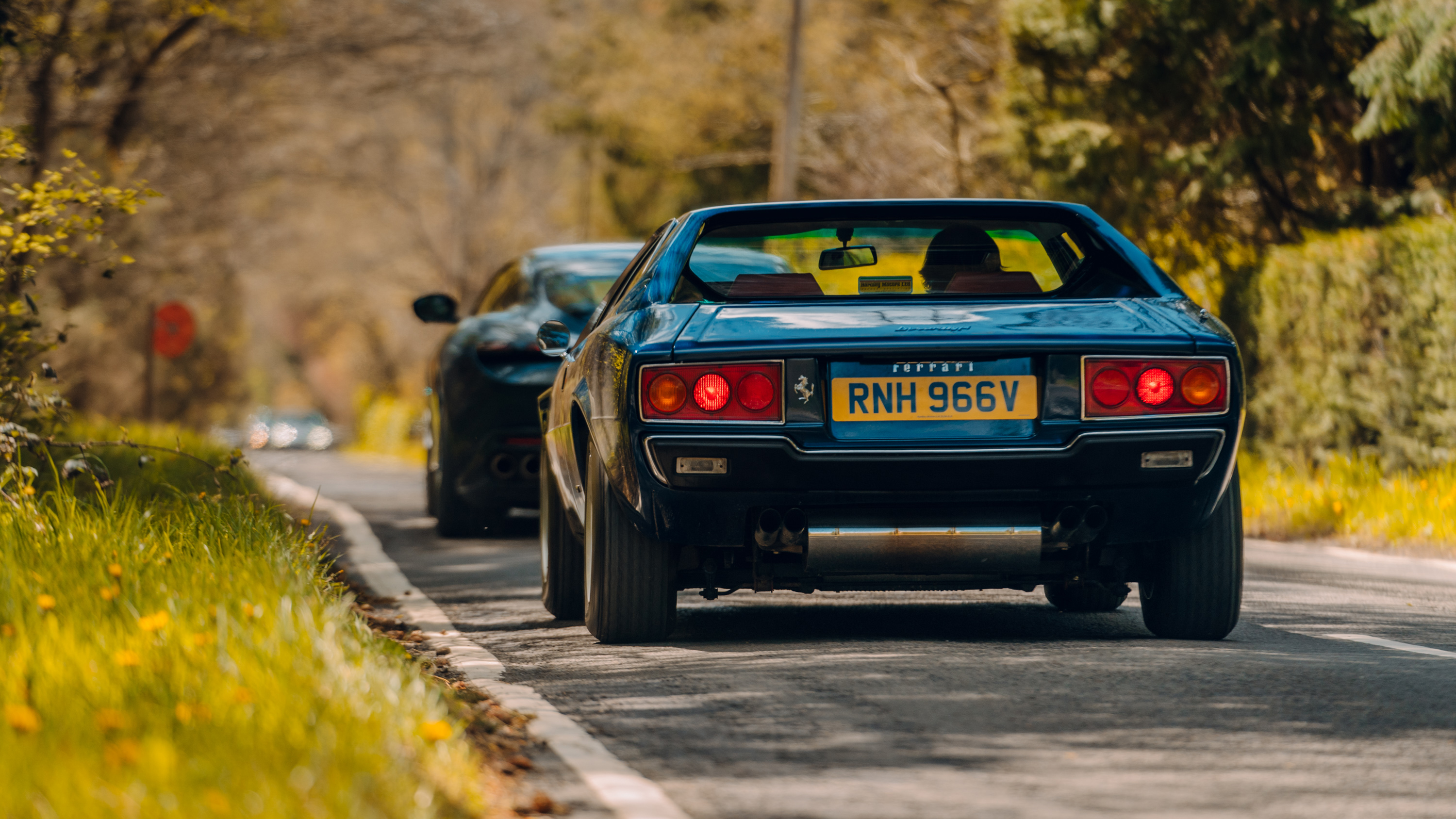
Ferrari 308 GT4 review
Good stuff
The styling's aged a treat. It feels an authentic Seventies supercar experience
Bad stuff
Some may still say it's not a proper Ferrari. Ignore them
Overview
What is it?
What the 308 GT4 technically isn’t is a Ferrari. Or at least it wasn’t at launch. It was unveiled in 1973 at the Paris motor show under the firm’s Dino brand, as a 2+2 supplement to the gorgeous Dino 246 GT.
Ferrari badges crept onto it over the course of its seven-year life, but unlike the 246, it’s not since flourished into legend status and thus remains one of the cheapest ways into Cavallino Rampante (or Prancing Horse) ownership, good ones starting at around £50,000. And yet it ought to be an icon; it’s a car of firsts.
Like what?
This was the first Ferrari to be designed by Bertone, and its pop-up-lamped wedge shape drew much criticism in the early Seventies, predominantly for looking too much like the design house’s other wares. Cars like the Lancia Stratos, Lamborghini Countach and Maserati Khamsin. Imagine being told you look too much like those.
It was also the first production Ferrari to use a V8 engine, a 2.9-litre 90-degree V8 being transversely mounted behind the cabin and producing a now quite modest 250bhp (at 7,700rpm) and 210lb ft (at 5,000rpm), though both figures shrunk a little through the car’s life and for US imports. Anyone especially concerned by rampant power and emissions had the option of a 2.0-litre V8 version – the 208 GT4 – from 1975, a response to stringent Italian tax laws. Cheaper to buy, but your penny pinching got you just 170bhp to play with.
It’s a 2+2, you say?
Yup. It squeezed an extra pair of seats into a wheelbase only 21cm longer than the Dino 246. No mean feat when that V8 is also between the wheels, too. The mid-engined 2+2 is a rare beastie, but this one does it properly – you’ll fit way more human in the back of one of these than you will a Lotus Evora, where the seats feel more like mere decoration. Or somewhere to pop a very light bit of shopping.
You can thank old-school safety regs for that, of course, and our day with the car revealed those perched in the back will need reasonably flexible legs and a nonchalant attitude towards being a bit too hot. But headroom is seriously impressive and utterly embarrasses Ferrari’s latest V8-powered 2+2, the front-engined Roma. Just look at how the roof stretches over the rear seats before sloping back down – Bertone’s sketchers knew what they needed to do here.
Enough practicality, back to performance…
It’s fair to describe the 308’s performance as ‘of its time’, but that’s not to say it’s slow. Acceleration figures will largely be dictated by how confidently you use its gorgeous open-gate, dog-leg five-speed manual gearbox. No whip-crack twin-clutch magic to save any blushes here – you need a finely balanced mix of strong limbs but delicate control to get the best out of a Seventies supercar like this.
Weighing little more than a tonne, though, it’s certainly brisk enough. Expect 0-62mph in a smidge under seven seconds and a 158mph top speed. Really not shabby at all, and with the driving position effectively pointing you at the centre of its goldfish-bowl windscreen, the world comes at you fast enough when you’re ensconced inside a GT4.
What's the verdict?
Having £50,000 to spend on a used Ferrari used to allow you to perused classified for F355s, but no more. The 308 GT4 is one of the few models that can claim the dubious credit of being so attainable, but we’d argue you want one of these more than you want its Mondial successor for a few grand less.
Not least because it looks and feels the Seventies supercar part. Way more bewitching to be around than you might expect of a Ferrari not even originally marketed as one, it’s special at all speeds and takes a sense of occasion with it everywhere. If you buy carefully – from a specialist and with much inspection – you’ll end up with about an enthralling slice of exotica for the price of a clumsily specced Audi TT. And one that boasts roomier back seats, too.
Featured

Trending this week
- Car Review
Honda Civic eHEV






